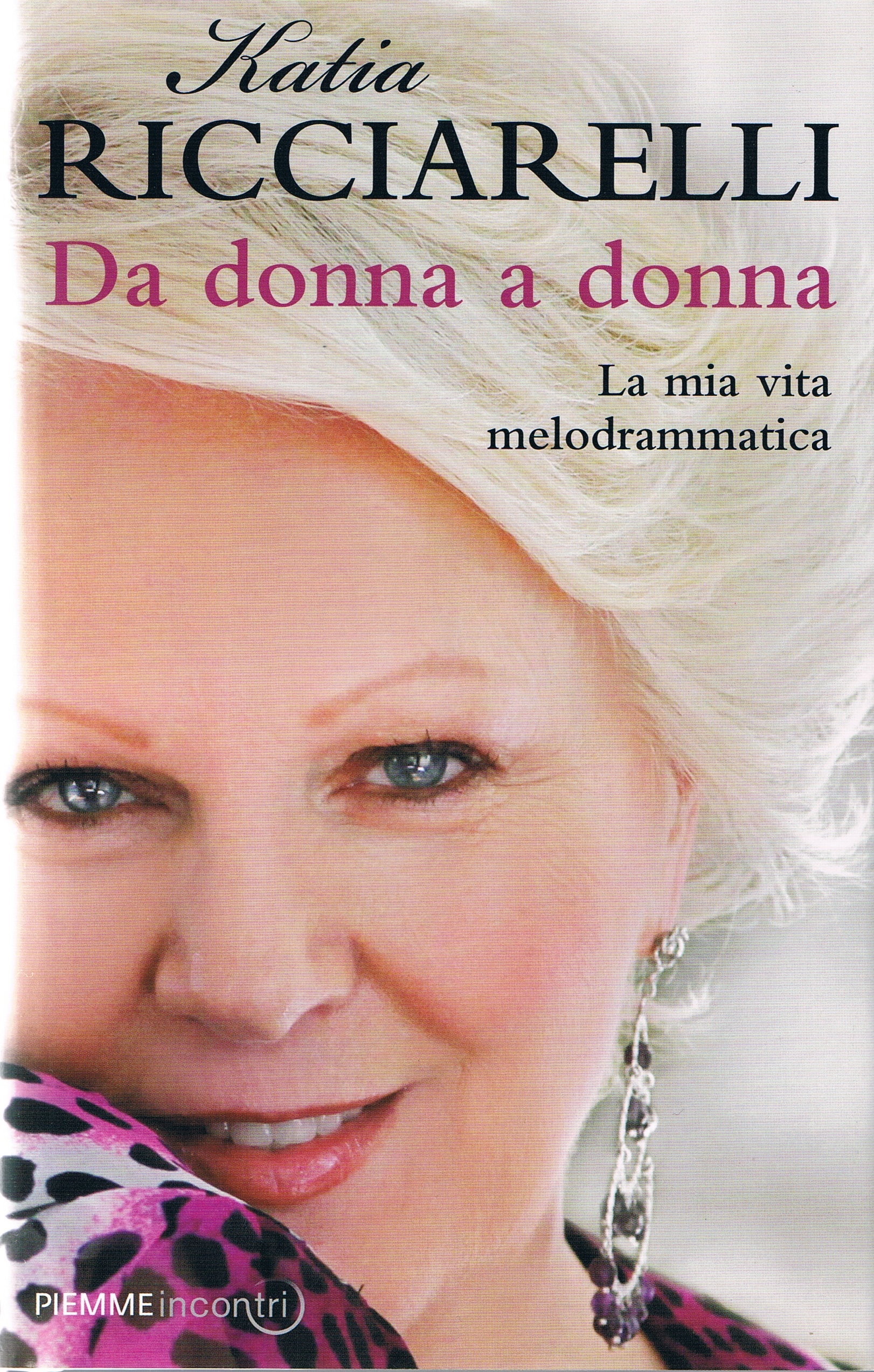
Katia Ricciarelli: Da donna a donna. La mia vita melodrammatica.

ISBN 978-88-566-4062-5
176 pp; Edizione Piemme 2015, www.edizpiemme.it
Confessions from one woman to another. My melodramatic life. I think title and baseline make it perfectly clear what one gets in this kind of book. Forget even the slightest hint of a chronology, a discography etc. Maybe ‘My life and my loves’ would be more to the point. One even has to read very carefully before one understands (at least one hopes so) the facts regarding Madame Ricciarelli’s birth. Her mother married a man who was one of 250.000 Italian soldiers on the Russian front. She had two daughters with him and he never returned from the war. Afterwards la mamma went to work in Germany, met another Italian and Katia was conceived. When the couple returned to Italy after the war, it became clear the soprano’s father had not told her mother he was already married. Ricciarelli was born on the 18th (and not the 16th) of January 1946 and – though she never states it explicitly- probably bears the name of her mother only as she was born out of wedlock. So this is not the same story you’ll find in the sleeve notes of her first LP (Katia Ricciarelli Sings Verdi RCA 1972) where one reads “she was barely two when her father died”. That same LP informs us her sister Luisa was killed in an automobile accident (correct) but also notes “later she lost her three little brothers” . Those brothers have entirely disappeared in this book and probably never existed.
On her operatic career Madame Ricciarelli has not much to say. She belongs to the “I triumphed in X and had a still bigger success in Y”-category. There is no soul searching into her repertoire or her artistic choices. Almost the contrary. Karajan and Abbado foolishly casted her in recordings of Tosca, Turandot and Aida and get high praise. The Salzburger said to Ricciarelli (anyway according to her) that he had been waiting for forty years for such a Tosca. He probably told the same story – with much more reason- to Leontyne Price and many other sopranos. The miscasting resulted in a bad failure when in 1983 she tried to sing the role of Aida on scene in London. Do not expect a word on her disastrous début in Norma in Trieste in 1986 or her La Scala Luisa Miller three years later when the catcalling was so bad that at her final bow she screamed all spectators should go to hell. Neither has she anything to say about her recurring vocal problems; especially the fact she never succeeded to overcome the many problems in the high register that finally undid her. On the other hand if you are interested in her love problems with José Carreras you will get full shrift. On almost every page she pours forth her joy and her love for the Catalan tenor with whom she had a relation for 13 years. She has even pardoned his infidelities and the fact Carreras used her as “un deuxième bureau” while he didn’t think of leaving his wife Mercedes at the time. Ricciarelli is less forgiving for Pippo Baudo; the immensely popular television-presenter she met and went to bed with in less than half an hour (a detail she omits but told the world earlier on). The couple married and she did everything she could to have a baby but it didn’t work out. From then on the marriage went downhill and ended in divorce. And before I forget, thanks to Carreras she was a roulette addiction for many years (at least here she is in the great Di Stefano tradition).
Enough said. Do not throw your money away on these memoirs. But a pity it is as for a few years Ricciarelli seemed to go straight to the top. I remember hearing her as Amelia Grimaldi in Verona in 1973. The voice was warm and easily filled the arena though there was some strain at the top. Six years later she was at her very best as a convincing and beautiful Violetta. This time I didn’t notice particular strain though she didn’t opt to sing a high E. But only a few years later the voice unravelled. Still her indeed dramatic life, her spectacular rise and even more spectacular fall and the successful after-career as a popular actress in Italy would have made for an interesting real biography.
Jan Neckers